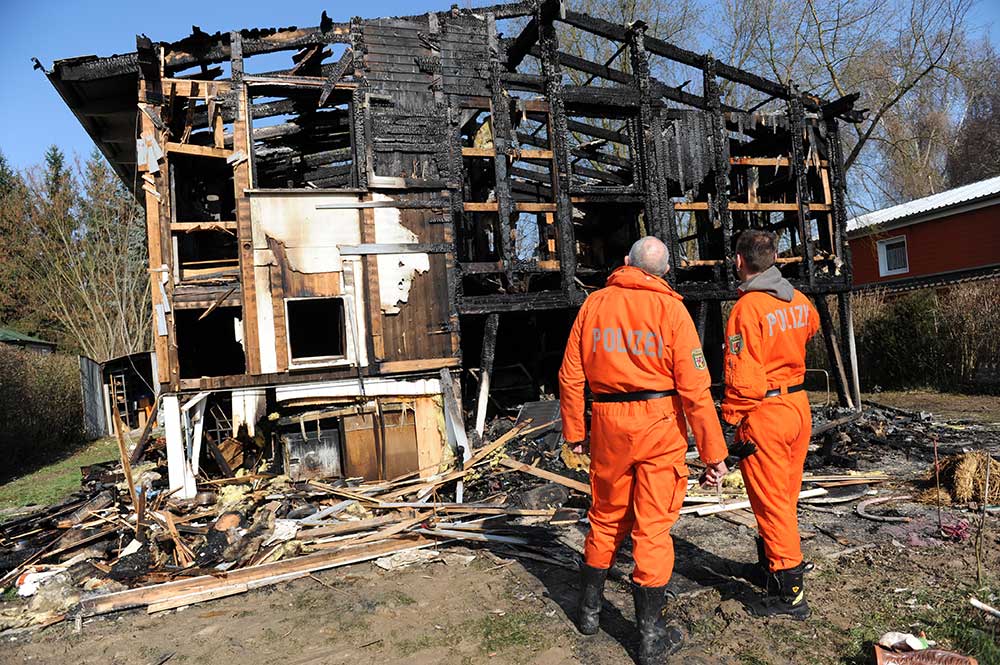Disclaimer: The information on our website is provided for general information purposes only. We make no representations or warranties of any kind, express or implied, about the completeness, accuracy, reliability, suitability or availability with respect to the website or the information contained on our website for any purpose. Any reliance on such information is therefore strictly at your own risk and we are not liable for any damages or losses arising out of or resulting from your reliance on any information contained on our website.
A fire investigator analyzes the evidence of a fire and attempts to determine it’s cause. Additionally, most have a background in firefighting and start specialized training to become an investigator. Next, take a moment and watch a video to learn what a fire investigator does.
How to Become a Fire Investigator
Most fire investigators started their career out as a firefighter (read how to become a firefighter). Next, they may continue their training to become a fire inspector. Though most employers prefer candidates with an associate’s or bachelor’s degree, some have no degree. Additionally, a fire inspector can gain a certification. These certifications include the Certified Fire and Explosion Investigator (CFEI) Certification from the National Association of Fire Investigators.
Job Description of a Fire Investigator
Fire investigators collect evidence and take photos after a fire in an attempt to solve how the fire started. Also, like a police detective, they collect evidence and send that to labs. Also, they interview anyone that may have knowledge about the fire. These investigators also collaborate with other professionals such as chemists, engineers, and attorneys. Often, they also have formal training to investigate explosions as well.
In the case that a fire or explosion was intentionally started, they testify their findings in court. Fire investigators would also write a report detailing their findings from the investigation. Because of the nature of the job, fire investigators could be exposed to hazardous conditions on the job and could work a variety of different hours, including nights, weekends, and holidays.
Fire Investigator Career Video Transcript
Smokey Bear may be the most recognized fire prevention figure in the country, but there are a variety of workers involved in preventing and investigating fires. Fire inspectors search buildings for fire hazards and ensure that government fire codes are met. They inspect buildings, from apartment and office complexes to stadiums and schools. Additionally, they also test fire alarms and extinguishers, review evacuation plans, and conduct fire safety education programs.
Fire investigators attempt to reconstruct how fires occur. They collect evidence and interview witnesses to determine the origin and cause of building fires. Additionally, they may be exposed to poor ventilation, smoke, fumes, and other hazardous agents. Forest fire inspectors and prevention specialists also lookout for conditions that pose a wildfire risk, recommend ways to reduce fire hazards and conduct patrols to enforce regulations and report on conditions. They spend much of their time outdoors in forests and fields.
Most fire inspectors, investigators, and forest fire specialists have work experience as firefighters along with specialized classroom and on-the-job training. Also, while some employers prefer candidates with a degree in fire science, forest fire specialists typically need a high school education. Also, additional requirements vary by state.
Article Citations
Bureau of Labor Statistics, U.S. Department of Labor, Occupational Outlook Handbook, Fire Inspectors and Investigators.
National Center for O*NET Development. 33-2021.02. O*NET OnLine.
The career video is in the public domain from the U. S. Department of Labor, Employment and Training Administration.

